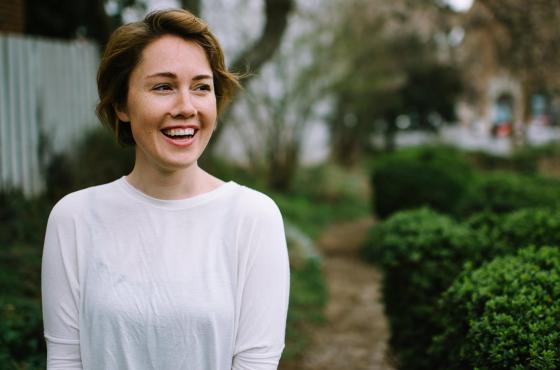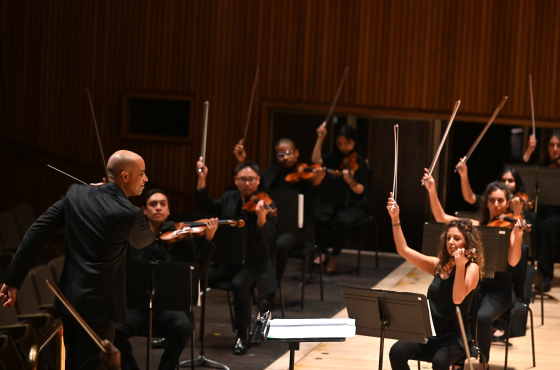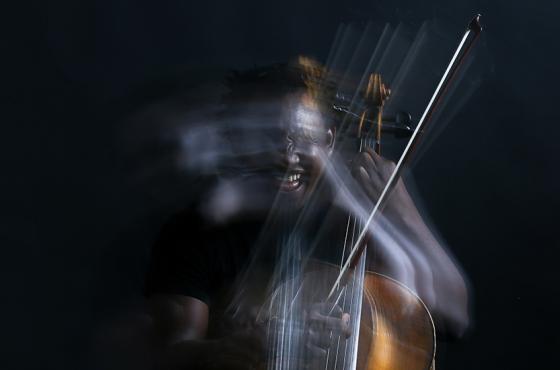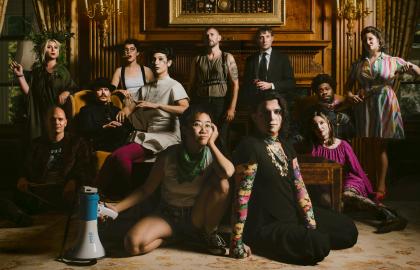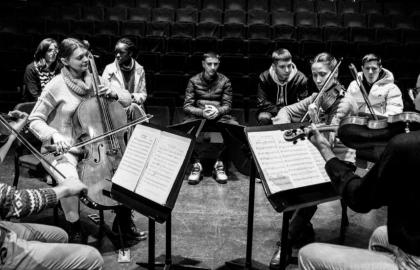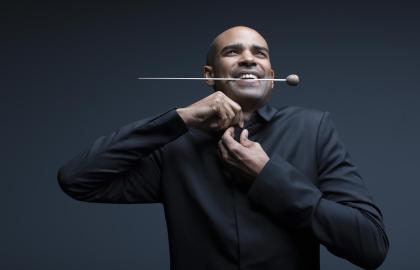“Exploring humanity with our voices… that’s a gift.” With these words, Roomful of teeth accepted their Grammy. But the vocal ensemble draws on much more than European singing traditions. Influences of polyphony, baroque, throat singing, Georgian belly singing, Korean pansori, minimal music, and pop flow together into a never-before-heard whole. The programme includes two catchy compositions by the versatile composer-violinist-vocalist Caroline Shaw. With her Partita for 8 voices (2013), Shaw became the youngest ever winner of the Pulitzer Prize for music.
“Come as you are.” This is how the Manchester Collective welcomes curious listeners. It is best to respond with the same enthusiasm and respect as you would at any other show. “All we ask is that you listen with an open mind and ears.” Together with cellist Abel Selaoscoe, they produce a warm whirlwind that energetically blows through musical traditions.
“Championing change and celebrating diversity in classical music.” This is how cellist Chi-chi Nwanoku describes the mission of the Chineke! Orchestra. Since 2015, the orchestra and its youth orchestra have been making musicians of colour (BME – Black and Minority Ethnic) feel that they belong on classical stages, that they are heard, and that they can fulfil their musical ambitions. The orchestra will perform the world première of the Concerto for Orchestra by American composer Brian Raphael Nabors.
Inevitably, time also had a hold on the Kronos Quartet. Of the original 1973 line-up, only founder David Harrington (violin) remains. “What would happen,” Harrington wondered, “if we could, through our years of working with hundreds of composers from many places, make a body of incredibly interesting, fun music that could serve the next generation as a launching pad to a world of discovery?” Kronos asked 50 composers for a new string quartet. You can download the scores for free. Bozar hosts around 30 ensembles, whether students, passionate amateurs, or professional musicians, during a single marathon performance.
Learning to play new classical music together and opening your ears to other soundscapes remain the best bet for the future.


